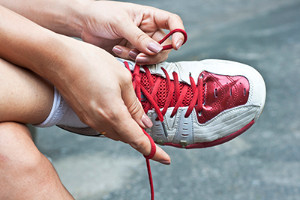
Choosing the right running shoe is vital for comfort and performance. There are four main types of running shoes, each designed to address different needs. Motion control shoes are ideal for runners who overpronate, offering extra support to prevent excessive inward rolling of the foot. Stability shoes provide moderate support and cushioning, making them suitable for runners who need a balance between comfort and stability. Neutral shoes are designed for runners with a neutral stride, providing cushioning without added support, perfect for those with a natural gait. Lastly, minimalist shoes aim to mimic barefoot running by offering minimal cushioning and support, encouraging a more natural foot movement. Understanding your running style and foot mechanics is key to selecting the right shoe, as it can help improve performance and prevent injuries during your runs. If you have sustained a foot or ankle injury while running, it is suggested that you consult a podiatrist who can treat various foot conditions, and guide you on what type of running shoe to purchase.
If you are a runner, wearing the right running shoe is essential. For more information, contact one of our podiatrists from Columbus Podiatry & Surgery. Our podiatrists can provide the care you need to keep you pain-free and on your feet.
Choosing the Right Running Shoe for Your Foot Type
To increase performance and avoid the risk of injury, it is important to choose the right running shoe based on your foot type. The general design of running shoes revolves around pronation, which is how the ankle rolls from outside to inside when the foot strikes the ground.
- Neutral runners are able to choose from a wide variety of shoes, including minimalist shoes or even going barefoot.
- Runners who overpronate, or experience an over-abundance of ankle rolling, should choose shoes that provide extra motion control and stability.
- Runners who underpronate, or supinate, have feet that have high arches and lack flexibility, preventing shock absorption. They require shoes with more flexibility and cushion.
If you have any questions please feel free to contact our office located in Columbus, OH . We offer the newest diagnostic and treatment technologies for all your foot and ankle needs.
